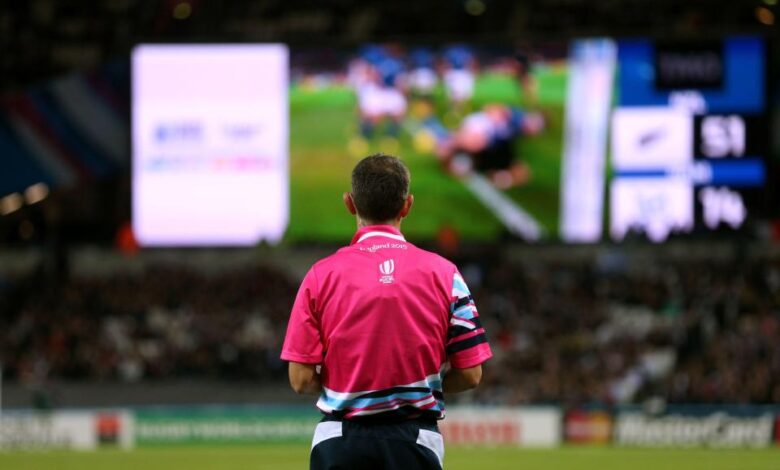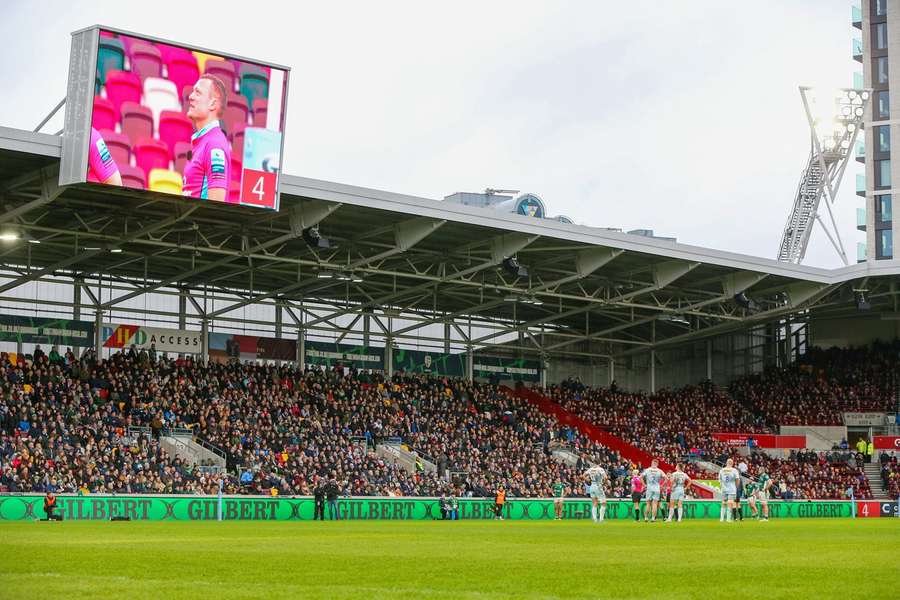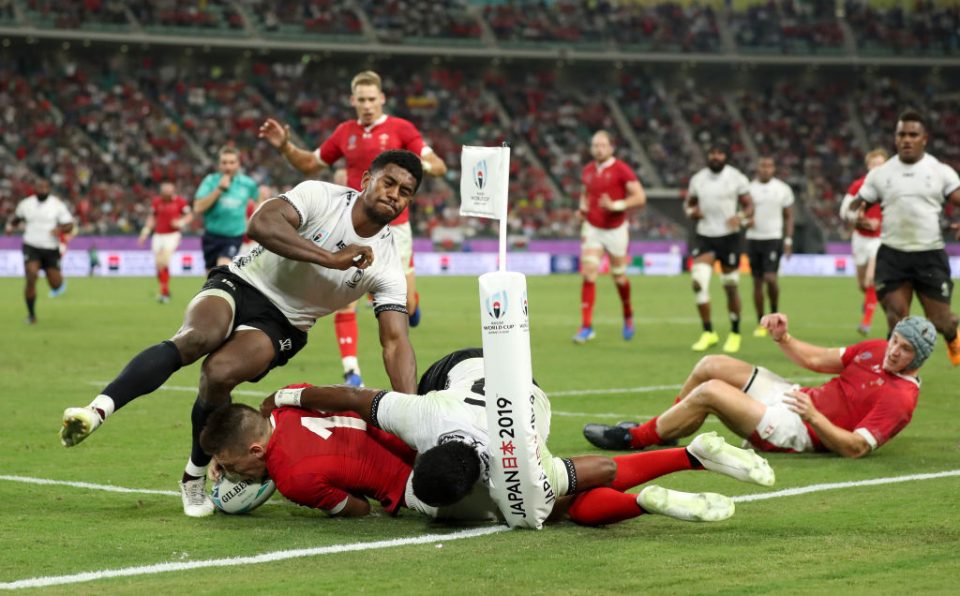Should Football’s VAR Follow Rugby’s TMO Example?

In a historic first, football fans on Monday were given a behind-the-scenes look into how the VAR process is conducted in the Premier League with the release of never-before-seen footage of in-game audio.
The special edition of Monday Night Football on Sky Sports featured PGMOL referee chief Howard Webb analysing several key moments of the season and explaining why some decisions were ruled correctly or should have been adjudged differently.
Webb appeared on the programme in a bid to increase transparency following a spate of recent VAR controversies, but should it take his appearance on a TV show, reviewing a select group of matches months after they have taken place, for fans to understand why specific decisions were made?
Should football’s VAR follow the example of rugby’s TMO?
TMO or VAR?
In rugby, referees make on-field decisions before asking the television match official (TMO) whether it was correct; for example, if there was a knock-on or grounding of a ball in the build-up to a try, or whether a red card should be issued for a high or dangerous tackle.
In a bid to increase transparency, TMO guides spectators through the decision-making process, with fans inside the stadium able to watch the action replayed live on the big screen, frame-by-frame, at the same time as the on-field match officials.

All of this is available to television viewers at home, with everyone able to listen to the referee’s radio conversations with his off-field colleagues as a verdict is reached.
Former international rugby referee Nigel Owens believes TMO is currently superior to VAR because of this. “When you put a decision up in rugby, it’s explained and shown why the decision is given or changed,” he told TalkSport.
“Everyone watching the game in the stadium or at home knows exactly why the try was disallowed because he’s knocked it forward.
“You may not agree but you know why the decision has been made, so it’s better in that context,” he added.
The TMO process has often been criticised for taking considerable time with reviews allowed over a plethora of incidents, which is an issue the Premier League are at odds with having instructed its referees to minimise interference and let the beautiful game flow naturally.
Sticking point
FIFA have forbidden the use of in-game live audio of its referees, with fans only able to see the final outcome – not how officials reached their verdict.
This is significant given VAR can only be used in case of a ‘clear and obvious error’.

This has led to inconsistencies over its use since its launch in the 2019/20 season – 17 years after TMO’s introduction – especially with the awarding of penalties and issuing of red cards, which can often be subjective.
It is because of this, there is a growing clamour for VAR to follow TMO’s footsteps and release the live audio of its referees during matches.
Webb acknowledges Monday’s programme could be a milestone for making this a reality.
“Obviously, this is something new (playing audio of the referee),” he told Sky Sports.
“We are making a small step forward and going into next season we’ll be looking to do more of the same.
“We can’t play it live in-game; that is not allowed within the laws of the game. FIFA don’t allow it to be played out during the game. Who knows where that might go in the future?
“We want people to understand how good our officials are, to understand the rationale. People might not always agree with the outcome but when they can hear the rationale and see the process, they’re much more prepared to accept the final decision in those circumstances.”
“We had a couple of situations early in the season where the process of VAR wasn’t followed quite correctly… but there is nothing stopping us from doing what we are doing tonight and showing that information later.”




